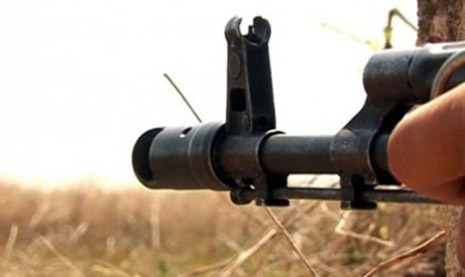Response to shelling of villages and civilians to be destructive - Azerbaijani ministry

“The Armenian armed units’ recent massive shelling of the positions of the Azerbaijani armed forces and frontline settlements by using large-caliber weapons, such as mortars, used for the first time for several years, testifies to Armenia’s desperate situation,” he said.
Dargahli said that recently Armenia aggressively targets Azerbaijani civilians and wants to seek revenge for its unsuccessful operations at the contact line.
“While using all available military capabilities, the Azerbaijani side takes and will take appropriate stringent measures.
"The Armenian armed forces will suffer huge losses,” he said. “This will be our response. The responsibility will entirely lie on the Armenian leadership. Azerbaijani Defense Minister, Colonel-General Zakir Hasanov has ordered the army to give the invaders no quarter in the Azerbaijani lands and to take the wind out of their sails. The Azerbaijani army will take all necessary measures to fulfill these tasks and to liberate the Azerbaijani lands."
The Armenian armed forces fired on the positions of the Azerbaijani armed forces and frontline settlements by using large-caliber weapons, anti-tank grenade launchers and 60- and 82-millimeter mortars on January 3.
The Azerbaijani foreign ministry issued a statement. The continued occupation of Azerbaijani territories and the presence of the Armenian armed forces on these lands can only lead to negative consequences, the statement says.
"Without withdrawing the occupation forces, Armenia aggravates the situation and encourages instability and human losses in the region,” the statement says. “As an occupier and aggressor, Armenia has full responsibility for these actions."
The conflict between the two South Caucasus countries began in 1988 when Armenia made territorial claims against Azerbaijan.
As a result of the ensuing war, in 1992 Armenian armed forces occupied 20 percent of Azerbaijan, including the Nagorno-Karabakh region and seven surrounding districts.
The two countries signed a ceasefire agreement in 1994. The co-chairs of the OSCE Minsk Group, Russia, France and the US are currently holding peace negotiations.
Armenia has not yet implemented four UN Security Council resolutions on the liberation of the Nagorno-Karabakh and the surrounding regions.















































